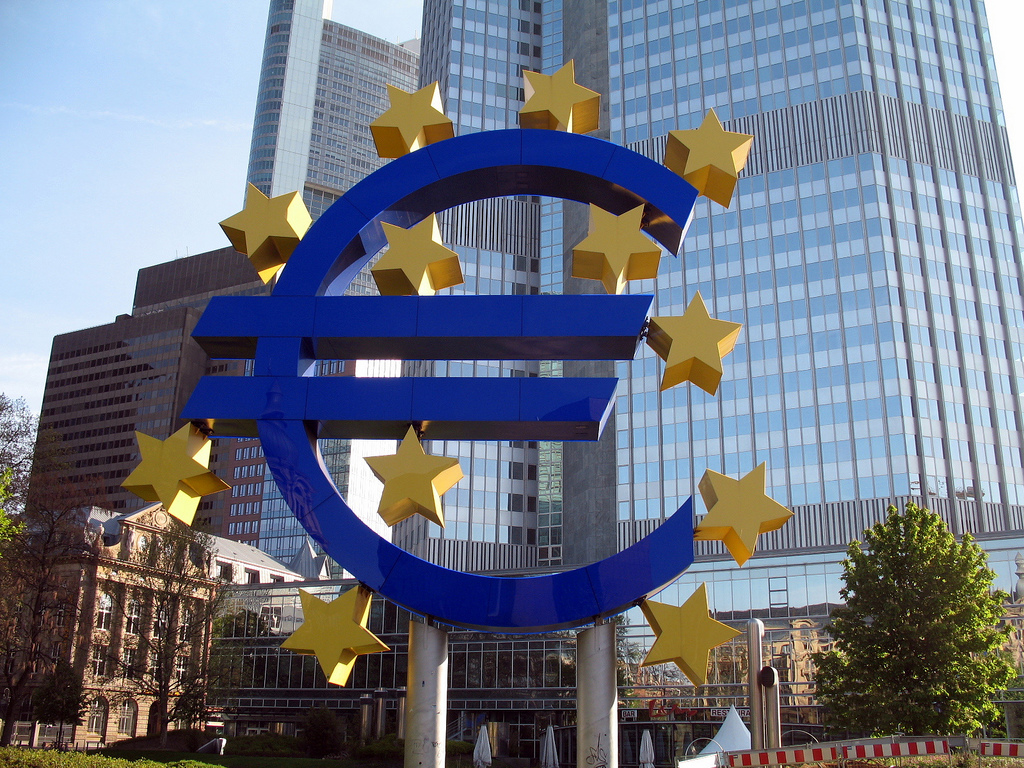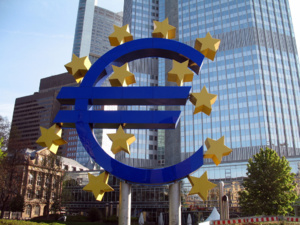The Friday events have very badly coincided with the macroeconomic situation in Europe. Just two weeks ago, Head of the European Central Bank Mario Draghi acknowledged risk of overslow in economic and the presence of strong deflationary pressures. And so it overlaps the threat of falling business activity due to the overall tension in the region.
It has priority consequences for the ECB. Now on 3 December, Mario Draghi and colleagues are obliged to announce launch of a large-scale and impressive quantitative easing. Such an announcement must necessarily impress investors and cause a proper market reaction, i.e. decline in the value of loans and the weakening of the euro.
Investors are now preparing for the possibility that the ECB may expand the quantitative easing program by 10 billion euros per month. Also, there is a great probability of extending its term, as well as reduce in rate by 0.1%. Deposit rate then would sink even deeper into negative territory at the level of minus 0.3%.
Yet, if one is going to hit the market, it is necessary to surprise with amount, or show some astonishing inventiveness. Perhaps, the ECB will limit itself with cutting the rates once again, no matter how unrealistic this outcome seems today.
Besides, it should be remembered that the European monetary authorities have a reliable ally in this currency war - the Fed. The US central bank indeed helps with the task of cheapening the euro against the dollar. Yet, its policies - to make the dollar more expensive than anything. Still, this does not change the essence, and costs of the two major reserve currency continue getting inexorably closer.
Today, just two weeks before these important meetings, we often hear that the Fed would be difficult to raise rates when the ECB softens policy so aggressively. They say it will lead to too strong appreciation of the dollar and hit US exports.
If anything, what if this is the aim pursued? The American economy has never particularly relied on exports, unlike China or even Germany. The only significant US exports is debt. The strong dollar just might support the US bond market, when large buyers are leaving the field. Who had bought Treasuries? Virtually the entire list of major players - developing countries: China, Russia, Saudi Arabia. This group of countries recently observed fall in dollar revenues, and increased capital outflows. Amount of free dollars, for which one can buy new US debt, is growing smaller.
That’s here the ECB might come to help just in time, their actions indirectly supporting US Treasuries. After all, who wants to invest in Europe as a negative yield. Considering already mentioned deposit rate of minus 0.3%, Europe is not very attractive investment.
All the US debt is trading with a positive return. After the first Fed’s rate hike, this yield will be even a little more interesting, especially against the background of European minuses. So everyone can meet their macroeconomic objectives.
source: snbc.com, bloomberg.com
It has priority consequences for the ECB. Now on 3 December, Mario Draghi and colleagues are obliged to announce launch of a large-scale and impressive quantitative easing. Such an announcement must necessarily impress investors and cause a proper market reaction, i.e. decline in the value of loans and the weakening of the euro.
Investors are now preparing for the possibility that the ECB may expand the quantitative easing program by 10 billion euros per month. Also, there is a great probability of extending its term, as well as reduce in rate by 0.1%. Deposit rate then would sink even deeper into negative territory at the level of minus 0.3%.
Yet, if one is going to hit the market, it is necessary to surprise with amount, or show some astonishing inventiveness. Perhaps, the ECB will limit itself with cutting the rates once again, no matter how unrealistic this outcome seems today.
Besides, it should be remembered that the European monetary authorities have a reliable ally in this currency war - the Fed. The US central bank indeed helps with the task of cheapening the euro against the dollar. Yet, its policies - to make the dollar more expensive than anything. Still, this does not change the essence, and costs of the two major reserve currency continue getting inexorably closer.
Today, just two weeks before these important meetings, we often hear that the Fed would be difficult to raise rates when the ECB softens policy so aggressively. They say it will lead to too strong appreciation of the dollar and hit US exports.
If anything, what if this is the aim pursued? The American economy has never particularly relied on exports, unlike China or even Germany. The only significant US exports is debt. The strong dollar just might support the US bond market, when large buyers are leaving the field. Who had bought Treasuries? Virtually the entire list of major players - developing countries: China, Russia, Saudi Arabia. This group of countries recently observed fall in dollar revenues, and increased capital outflows. Amount of free dollars, for which one can buy new US debt, is growing smaller.
That’s here the ECB might come to help just in time, their actions indirectly supporting US Treasuries. After all, who wants to invest in Europe as a negative yield. Considering already mentioned deposit rate of minus 0.3%, Europe is not very attractive investment.
All the US debt is trading with a positive return. After the first Fed’s rate hike, this yield will be even a little more interesting, especially against the background of European minuses. So everyone can meet their macroeconomic objectives.
source: snbc.com, bloomberg.com






